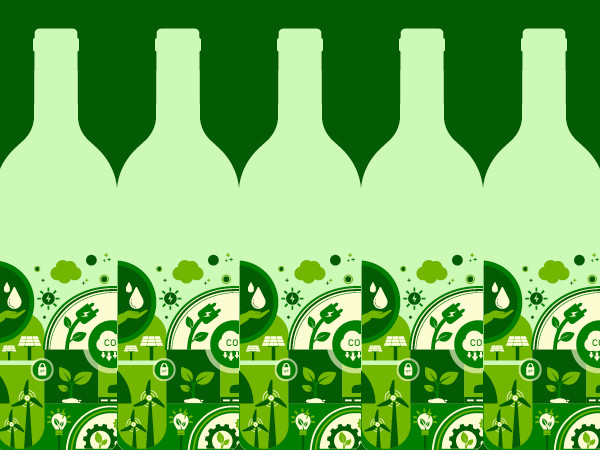
Soapbox: Celebrating the eco-margin
Rosie Davenport, founder of specialist sustainability and communications agency Impact Focus, stresses that wine brands should find a competitive advantage in sustainability – if it’s well communicated.
Almost every brand is trying to say something about sustainability, but the real challenge isn’t just saying it, it’s saying it well. Nowhere is this more evident than in wine, where heritage, terroir and tradition meet a rapidly evolving landscape of environmental standards, consumer expectations and regulatory pressures.
From grape to glass, wineries are under increasing pressure to not just take action on sustainability but to communicate it with clarity, credibility and consistency.
Yet, as the volume of sustainability messaging grows louder, so too does the risk of confusion, cynicism and accusations of greenwashing.
↓
Bridging the communication gap
The realities of the climate crisis mean many wine producers are already adopting approaches to safeguard their businesses, including regenerative viticulture, water conservation and ethical employment. While these and other measures are becoming operational imperatives, often companies miss out on the commercial upswing of their efforts because of a void in communications.
Wine has always existed through stories, but producers are grappling with how to frame their sustainability narratives at a time when consumers have never been more willing to hear them.
Part of the problem is viticulturists and sustainability teams talk in terms of biodiversity, carbon sequestration and compliance. Meanwhile, marketing and brand teams are tasked with simplifying the story for labels and wider promotional value. Too often, the result is mixed messages, inconsistent claims, or vague eco-statements.
With growing attention on greenwashing from regulators like the Competition & Markets Authority and consumers increasingly sceptical of undefined buzzwords, the consequences of unclear messaging can be reputationally damaging.
↓
Overclaiming/under-communicating
The wine industry, like many others, faces two common pitfalls. First, saying too much without proof. Claims such as “sustainably made” or “eco-conscious packaging” sound attractive but often lack clear definition or evidence. Without context or third-party verification, these statements are meaningless.
Second, saying too little and missing the opportunity. Some producers with genuinely progressive practices hesitate to communicate them. Whether through fear of scrutiny or a desire to stay humble, they miss the chance to engage customers who increasingly seek transparency and purpose. And if they don’t find these qualities in your brand, there’s every chance they’ll look elsewhere.
↓
Brands getting it right
The good news is that some wine brands are getting it right and reaping the benefits. The growing band of B Corp wine brands continue to set an inspiring tone, sharing their sustainability goals and annual progress through clear, visually engaging reporting.
Many say transparent communication – voicing the highs as well as the lows – is also winning them new business, particularly with busy buyers seeking alignment with producers walking the talk and not being afraid to shout about it. The most successful brands don’t just say “we’re sustainable”, they explain how and why, substantiating claims and actions guided by an actionable sustainability strategy. Having a robust roadmap also means they’re able to address challenges and explain the business’s improvement targets.
↓
The value of a joined-up strategy
To communicate sustainability with integrity, wine brands need a communications strategy that connects the vineyard, the winery, the brand team and the customer-facing story. That starts with shared language and understanding. Winemakers, marketing teams and sustainability leads must be aligned. Brands should also be clear on what can be said, and how. Terms like ‘eco’ or ‘carbon neutral’ need defined parameters and scope, and claims should be specific, rooted in evidence.
Real stories and data carry more weight than abstract promises. Rather than saying “we care for the land”, be specific: “We’ve transitioned 100% of our vineyards to regenerative practices since 2021.” Stories matter, but so does proof. Green claims should also go through a review process. Treating them with the same seriousness as financial or legal statements protects the brand and ensures you can stand up to scrutiny.
↓
Good communications
The wine world is full of real stories. The role of sustainability communications is to distil these stories into language that resonates with customers, trading partners, media and investors. You don’t have to be perfect, but you do have to be clear. To lead in sustainability, it’s about more than action. It’s also about owning your narrative with confidence that inspires and sets the pace on this crucial agenda.




